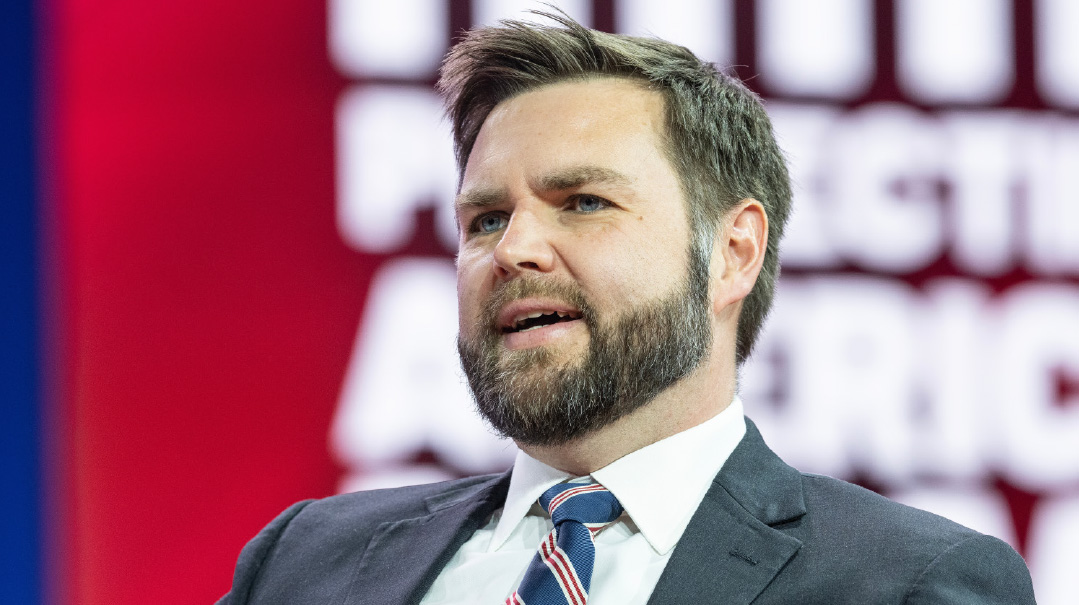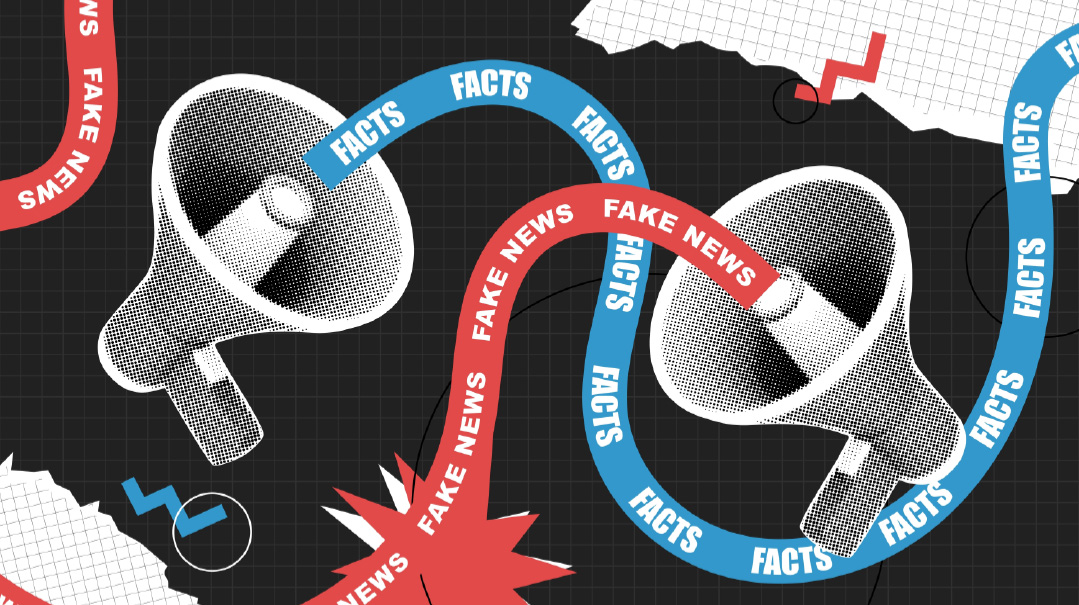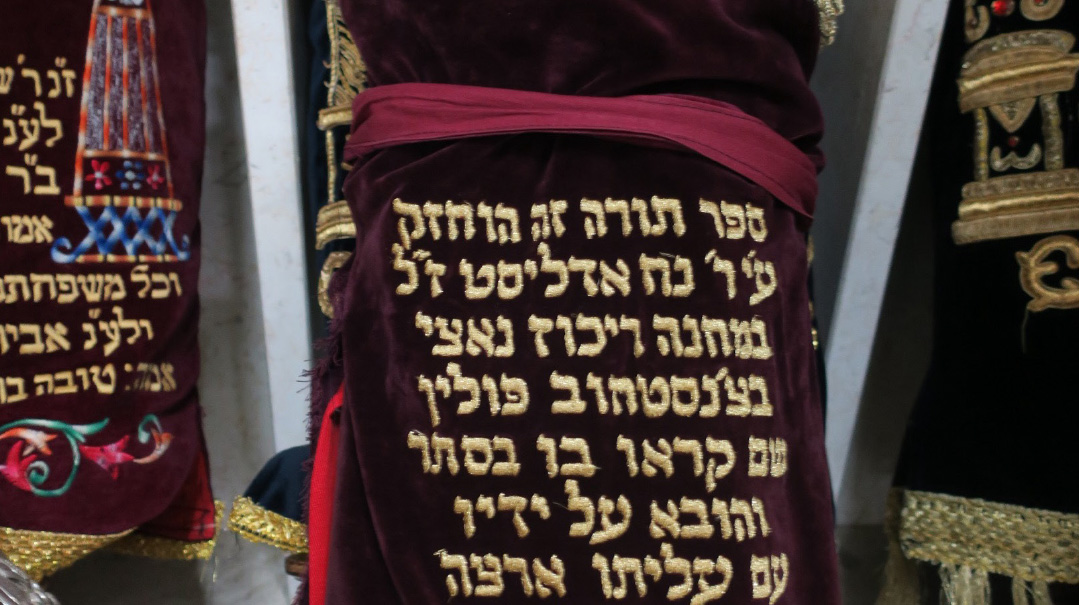Sitting Shivah for Mom

Yonoson Rosenblum mourns the mother who shaped his deepest values
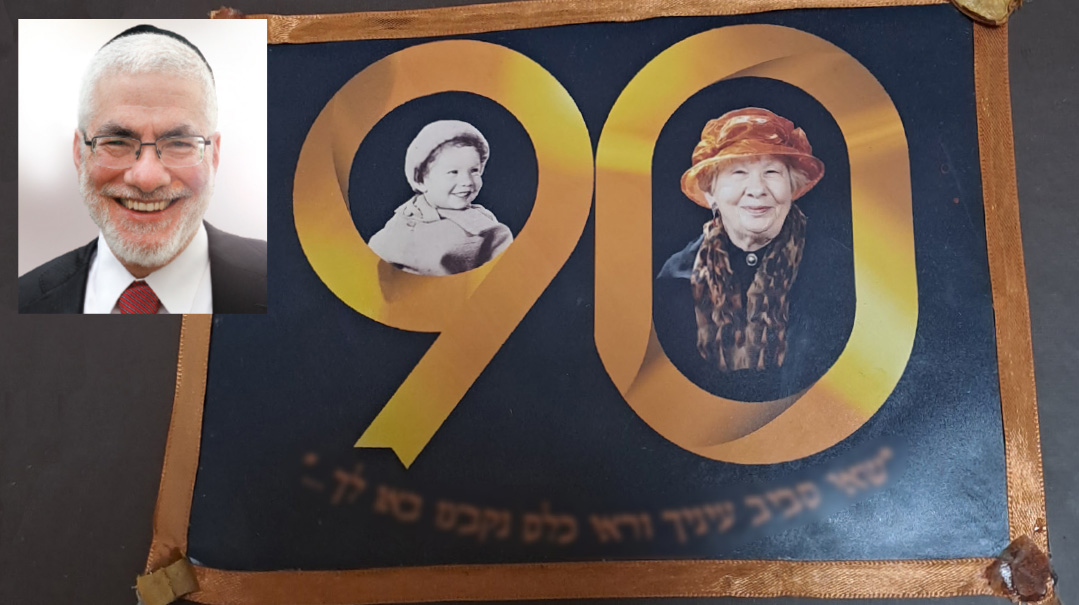
The majority of those gathered at Jerusalem’s Shamgar Funeral Home close to midnight on Monday night, 10 Iyar, less than three hours after my mother’s petirah, were her direct descendants and their spouses. That is hardly surprising, given that she left behind over 120 descendants — nearly every one of them living in Eretz Yisrael and a shomer Torah u’mitzvos.
The choices made by four out of their five sons to take on full Torah observance would have been a surprise to my parents when they married 75 years ago. But those choices were not an accident. Though we were raised in a Conservative home, my parents always conveyed the message that being born Jewish was our greatest privilege. Thus when we told my parents that they had no one to blame but themselves for the direction in which their family had gone — i.e., we had simply taken their messages seriously and each gone on to explore Torah Judaism — they admitted responsibility.
And having done so, they gave us their full backing. My father always said, “I think I have raised good sons. So I must respect their decisions.” At his 70th birthday party, he told us, “I have been very blessed. And I am doubly so in that I know how blessed I am.”
After my youngest brother Mattisyahu ztz”l passed away, Rabbi Beryl Gershenfeld, his first teacher of Torah, went to visit my mother. She expressed her happiness that Mattisyahu had found a life of learning and teaching Torah that so suited him and gave him so much joy.
My mother had her own theory about the trajectory of her sons: zechus avos. During shivah, a much younger friend of my mother’s shared that my mother attributed her children’s choice of fully Jewish lives to the dedication of her father, Maxwell Abbell, to the Jewish People.
My grandfather was the executive director of Jewish Charities of Chicago, predecessor to the Jewish Federation, when my mother was born in 1930. He went into Jewish communal work because the Chicago bank that had hired him as the top Harvard economics graduate of his year reneged on its offer upon realizing that he was Jewish.
In Jewish Charities, my grandfather constantly pushed Jewish education as the top communal priority — sometimes successfully, sometimes not. He earned both law and accounting degrees at night, and in time became one of Chicago’s leading tax attorneys, as well as a highly successful real estate syndicator. After leaving Jewish Charities, his focus switched to his own philanthropy and fundraising for Israel and other Jewish causes.
My grandmother once told me, “Every night was Kol Nidrei night in our home. Grandpa would invite his clients, lock the doors, and begin, ‘Remember, as your attorney, I know how much money you have, and this is what I expect.’ ”
I am the only grandchild old enough to remember my grandfather — he passed away at the age of 55 when I was only five. But he cast a long shadow over all his grandchildren’s lives, and the reminders of him are all around.
Givat Mordechai, home to Yeshivas Chevron, is named after him. Five great-grandsons and one great-great-grandson learned or are learning there. When my wife and I moved to the new Har Nof neighborhood nearly 40 years ago, we found a picnic area named for him in the Jerusalem Forest below, which preceded Har Nof by 30 years. And the chapel housing the famous Chagall windows at Hadassah-Ein Kerem, where my mother passed away during a medical procedure, is named after him as well.
As the firstborn, I bore the brunt of my mother’s idolization of her father as a great man. The first book she ever bought me was America and Its Presidents in third grade. And when it came time to write my first research paper in fifth grade, she suggested that I write about the Adams family; after all, they produced two presidents.
A second cousin once shared a conversation between my mother and his, shortly after my wife and I had decided to live in Israel: My mother speculated that my chances of being prime minister of Israel were greater than of becoming president of the United States. Little did she know that 40 years later, a Yedidim dispatcher would tell me, “I don’t speak English,” when I was speaking to him in Hebrew, or so I thought.
After I performed in a play in eighth grade, my mother commented, “It doesn’t appear that a thespian career is for you.” While that was undoubtedly an accurate assessment of my acting abilities, I suspect she had another agenda (likely unconscious) as well: She did not want me to get distracted on the way to the public role she imagined for me.
At a later age, I broached the idea of becoming a psychotherapist, to which my mother replied that I would at most help 300 people over a lifetime. That seems like a great achievement to me today, but not to the mother of my youth.
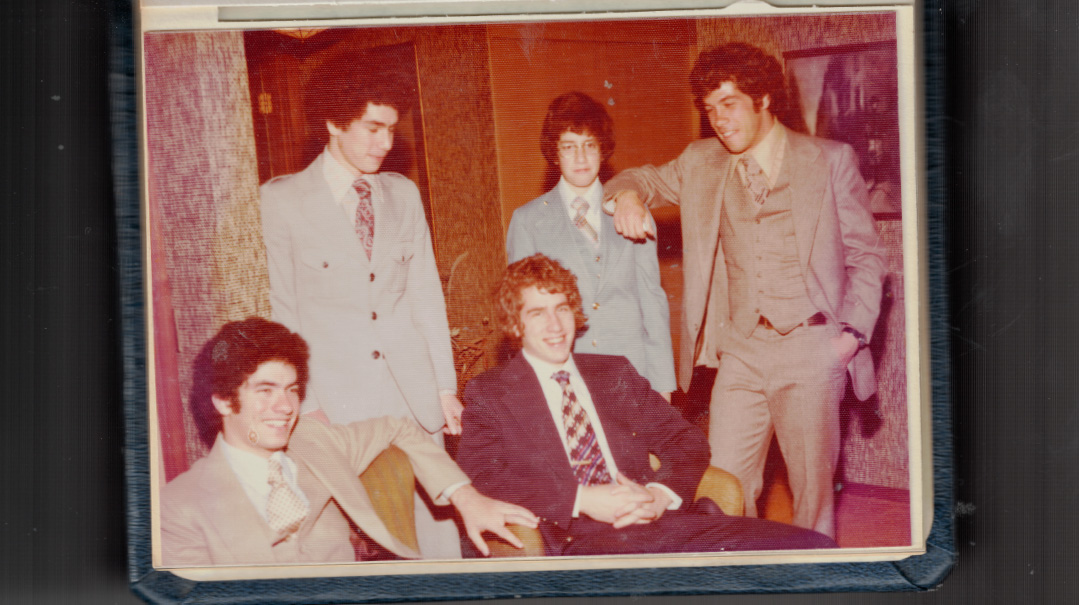
Though the five Rosenblum brothers were raised in a Conservative home, Mom and Dad made it clear that our Jewish identity was our greatest privilege. Was it any wonder four of us decided to follow the path to a fully Torah-observant lifestyle?
AS THE OLDEST SON of a young mother, I was probably shaped by my mother more than any of my brothers were. My youngest brother once reported her saying, “Matthew is 90 percent me; Jonathan is 100 percent.”
From an early age, my mother treated me as her confidant. After my father, I was the first person to know when another baby was on the way. And she treated me as an adult too early. I remember her telling me, when I was eight, that a classmate’s father was dying long before my classmate himself knew.
As a consequence of our closeness, I absorbed virtually everything from her: her idiosyncrasies — e.g., a fear of open closet doors, for instance, caused by her older brother warning her of the bogeyman about to pounce — and her taste in just about everything. It was only a few years ago that it occurred to me to buy a piece of furniture without asking my mother if she wanted to come along.
Above all, I inherited her values. What were those values? First, commitment to the Jewish People. One of the few times I saw my mother cry was when she woke me up on June 7, 1967, to tell me that Israel was at war. Mom had no use for anyone who she felt did not give sufficiently to Jewish causes. About which my father once remarked, “The only thing that bothers your mother about the decline of the family fortune is that she cannot give away more money.”
(Her own mother, in her late nineties, still dressed in her favorite blue silk dress and pearls every afternoon and sat writing tzedakah checks at her desk, not knowing there was no money left in the bank to cover them.)
The primacy of family was another central value. We ate together as a family every night at a set table. There was no TV in sight, with the sole exception of the UN debates leading up to the Six Day War.
Most summers we took a family car trip to the West in a station wagon with the back two seats usually down. Even before they moved to Israel 25 years ago, my parents often visited and took all of the Rosenblum brothers and our families away to the Golan during summer break.
My parents met at 15 and 17 during the Great Books era at the University of Chicago. My mother saved all her syllabi from her two years of college, and encouraged us to develop the love of learning that she imbibed from her father and the college. The bookshelves in my grandfather’s study were packed two deep, and in every room he had a book open.
My mother read a great deal. In her later years, she studied archaeology seriously, and even came to Israel on digs. And she pushed us to read. One day when I was home sick in fourth grade, she went to the library and took out a 938-page book — The Count of Monte Cristo, if I recall. She handed it to me with excitement, along with a warning that the first hundred pages are slow going. (I took her warning to heart and never read the book.) When I would ask her what a certain word meant, her automatic reply was: “Look it up in the dictionary. You’ll remember it better.”
Both my grandfathers were big teases, a trait that skipped both my parents but not their offspring. Within the family, verbal jousts were frequent. But my mother would not tolerate teasing of non-family members. If one of us said anything cruel to another child in our car pool, for instance, Mom would instantly stop the car and make us walk to school.
Though my parents took pride in our academic achievements, they never made a fuss about them — no Yale stickers festooned their cars — or let us think that they made us better people.
One day, my mother returned home furious from a train ride into the city because an acquaintance had complained about the difficulties of raising a genius, all the while knowing that the woman sitting next to her had a child with Down Syndrome. When I came to tell her that my brother Mattisyahu had passed away, her first response was: “I blame myself for taking too much pride in how smart he was.”
The parents of my youth were vaguely liberal, like most of their suburban neighbors. But they were always socially conservative and strict, in a way few of our friends’ parents were. And my mother’s liberalism also came with a difference: She backed it with action, not just fine sentiments.
When I was a young teenager, she pushed me to work at a summer camp for kids from Chicago’s ghettoes. And while the Biafra collection campaign I organized during my senior year in high school was not her idea, it was certainly due to her influence.
My father often remarked that neither he nor my mother were perfect parents, but together they made a good team. We could not play our parents off against each other. They shared a healthy disregard for the opinions of others. As kids, we knew the fastest way to receive a maternal “no” was to tell Mom that someone else’s mother permitted. “I don’t care what Johnny’s mother allows,” was her unvarying response. That independence of thought made it easier for my brothers and me to one day take leave of the success path for suburban youngsters.
Dad checked the math homework. But it was Mom who schlepped us to concerts and the Chicago Art Institute — to little avail. Her five boys were far more interested in Chicago sports teams than high culture. My mother very much wanted a daughter, but consoled herself for the absence of one: “Five boys are easier than five girls,” she would say.
One of my brothers once described my mother as someone who could see a one-in-a-billion chance — e.g., drowning in a bean-bag chair — as a near certainty. And she had a redhead’s high-strung personality. But in a genuine crisis, she became absolutely calm.
When she and my father arrived in Israel, after receiving a call that my brother Maxwell was in an Afula hospital, unconscious and hovering on the brink from meningitis, they both went straight to work without a touch of hysterics, fixing up the Migdal HaEmek apartment in which my sister-in-law was expecting her third child in four years.
My parents were good at devising punishments that conveyed a lesson. When a younger brother threw a stone at someone, she took him to a local park and made him walk around blindfolded for an hour to understand what it would be like to be blind. I once protested being asked to refill the milk when I didn’t think it was my turn by pouring ginger ale into the pitcher. When the first brother to taste the tainted milk spit it out immediately, I laughed. Big mistake. My father made me drink the entire pitcher.
My mother understood me better than I understood myself. She did not approve of my frequenting of the late ’60s equivalent of discos for a period in high school. One Sunday, she drove me down to the beach to speak in private. She told me I would never have any satisfaction from any relationship that did not start on an intellectual level. And she was certainly right. I felt at once reprimanded and respected.
As we sat shivah last week, during the long “off hour” stretches the house was filled entirely with my mother’s descendants. At times, I felt that the happiness of the cousins at seeing one another was not properly somber. But then it occurred to me that there could be no greater celebration of my parents’ lives than the closeness of their grandchildren. I can still remember my father kvelling, as he surveyed the cousins dancing at my daughter’s chasunah, “You can’t tell which one are siblings and which ones are cousins.” (Actually, there was a surefire test: Only the siblings ever fought.)
To the grandchildren, especially the granddaughters, my mother was viewed as the family matriarch — the one uniting, in the manner of monarchs, a large family after my father’s passing 17 years ago. Now there is no one left to fulfill the role of binding all the cousins.
True, I always thought that Mom looked a lot like Queen Elizabeth, but the family of my youth was too young for a matriarch. And my brothers and I were far too rambunctious to allow my mother to work on the serene smile seen in all the later photos with grandchildren and great-grandchildren.
But during the shivah, I realized for the first time, as I looked through a large cache of photos, that my mother’s unique and elegant style was always expressed in totally modest clothing, all the way back to my bar mitzvah. That, too, was in the manner of royalty.
Over 30 years of writing biographies, I have learned that children are rarely a rich lode of material. It’s not that they don’t know their parents, but rather that they know one aspect of their parents to the exclusion of others. That lesson was brought home powerfully during shivah.
Many children have a hard time imagining their parents’ lives apart from them. My mother’s Feldenkreis (a system of movement) teacher was one surprise visitor during shivah. An even greater surprise was an Orthodox woman 30 years my mother’s junior, with whom she hit it off at a granddaughter’s sheva brachos. Nearing 90, my mother took the initiative for developing the relationship. The two of them attended films and concerts together, and my mother apparently spoke freely about her life (something she almost never did with us).
My mother’s Filipina helper, Gina, who literally kept her alive over her last eight years with her devotion and intelligence, brought out a tender and expressive side of my mother. She related that when she was watching her sister’s funeral in the Philippines over Zoom, my mother had gotten out of bed by herself, which she rarely did, and had come up behind her on her walker to massage her shoulders.
Gina was also present for my mother’s final phone conversation with her youngest brother a few hours before his passing, in which she told him how much she loved him and that he would soon be together with their parents and siblings. In recent months, my mother had taken to calling Gina “Honey,” and caressing her hand before asking for her morning coffee.
We also learned from Gina about my mother’s unease with the scheduled procedure to replace a heart valve. Two weeks before her passing, she told Gina, “Paul [my father] is here.” When my daughter called her the Erev Shabbos before her passing, my mother did not stay on the phone long. When Gina asked her why she had been so abrupt, she answered, “She would have asked me how I was, and I would have had to tell her that I’m nervous, I didn’t want to make her nervous, too.”
Other friends and neighbors of ours who knew my parents for decades described her in ways with which I could identify: feisty, blunt, and outspoken. A friend of ours for over 40 years told me how my mother used to shower her with clothes that were no longer flattering on her.
“Funny” was a bit of a surprise, however, since it was only in recent months that I remember my mother saying deliberately funny things. But unquestionably she had a quirky view of the world, and a special affection for people whom she used to describe as “kicky” when I was a child.
My mother once presented then-president Moshe Katsav with a long, formal tablecloth that had belonged to my grandparents. When it was unfolded at a special formal ceremony at the President’s House, several stains were prominently displayed. Family members in attendance wanted to drop through the floor. But when Mom was asked whether she had known about the stains, she replied, “Of course, I did. I just figured the president would have access to better cleaners than I do.” (I guess I should be grateful that she had her wedding gown cleaned before my wife wore it 30 years later at our wedding.)
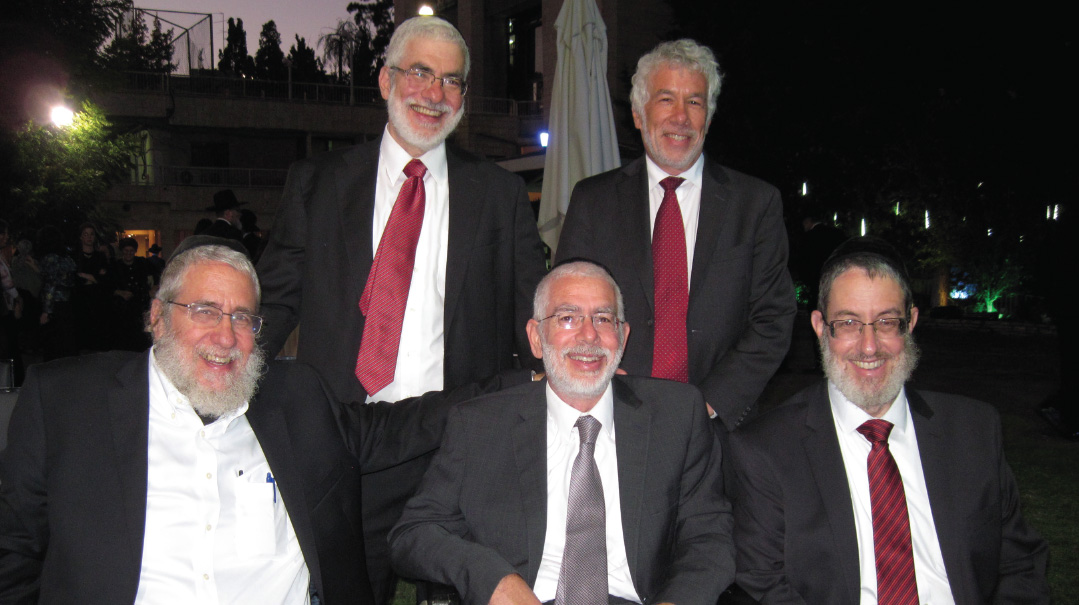
As kids, we knew the fastest way to receive a maternal “no” was to tell Mom that someone else’s mother permitted. “I don’t care what Johnny’s mother allows,” she always said. That early lesson made it easier for us to resist following the pack
ONE OF THE GREATEST CONSOLATIONS during shivah was the knowledge that my mother’s last month, after the rescheduling of the original procedure, was one of the happiest of her life. She stayed awake at our Seder much later than in recent years, and her subsequent pronouncement that “the Seder was fine, except Jonathan talked too much,” was hardly a surprise.
The entirety of Chol Hamoed was spent at a granddaughter’s home in Beit Chilkiya, with grandchildren and their children visiting from near and far. Over the last month, she attended a great-grandson’s bris and a great-granddaughter’s bas mitzvah gathering.
My brother Jeremy came in from the States and spent almost an entire week with her, and commented how greatly her mental acuity has improved after a change of medications. She celebrated her 93rd birthday together with her sons and their spouses, and managed to finish an appetizer, main course, and dessert, while we all contented ourselves with just the entrée.
Best of all were the four days spent with all my kids and grandchildren at a beautiful compound in the Galil, near Rosh Pina, celebrating a milestone birthday of my wife’s. Mom was presented with a birthday cake by about 15 great-grandchildren. My brother also took her to visit his kibbutz mother from 1976, with whom my mother had long been close, and she described their time together as “glorious” — a word I cannot remember ever hearing from her.
Still, she is gone, and one dwells on the opportunities missed and all that will never be again. In many ways, my last discussions with both parents were almost identical. The day before my father died, I sat with him in his hospital room, with him sitting comfortably in a chair and seemingly on the road to recovery from major surgery. “I’m 54 and still need you so much,” I told him. And on the next day, Shabbos, almost my last question was whether he had read my column of the week. He assured me that he had.
A little more than a month ago, I brought Shabbos food to my mother. She had been wavering about the procedure, which doctors assured us was necessary if she were going to live much longer. Just as I had told my father, I told her how much I still needed her, and started crying. I’m now at an age when I can no longer predict the flow of tears, but those tears made her happy and she gave me a big smile.
And on my last Erev Shabbos visit, I asked Mom whether she had read that week’s Mishpacha column. She wasn’t sure, until Gina pointed out that it was lying next to her on the bed. I was like a puppy eagerly bringing my parents a bone, in the form of the latest column. How I wish I could bring her this column to read….
One more thing stands out from that last trip to bring my mother food for Shabbos. At some point, I turned to my wife and told her, “We’ve got to scoot.” My mother immediately said to my wife, “Can’t you teach your husband something else to say than, ‘I have to scoot.’ ” And I realized I had hurt her by not spending more time, and not for the first time.
Three days later, we spent four hours together in her hospital room awaiting the procedure. But we did not speak much: She was reading the Jerusalem Report, and I was trying to be maavir sedra.
Baruch Hashem, I kissed her before she was wheeled into the operating room, as she told the anesthesiologist (who would later make a lengthy shivah visit) how hungry she was from fasting and they talked about her favorite flavor of ice cream. But I never dreamed I would not see her again alive.
The Zohar in parshas Bechukosai says that the principal mitzvah of kibbud av v’eim comes when one’s parents are gone, for in the World to Come we can serve them spiritually as well.
I pray that I and all the members of the large family my parents left behind will answer that call, and that Mom and Dad are together shepping nachas from all that they built together.
(Originally featured in Mishpacha, Issue 961. Yonoson Rosenblum may be contacted directly at rosenblum@mishpacha.com)
Oops! We could not locate your form.

